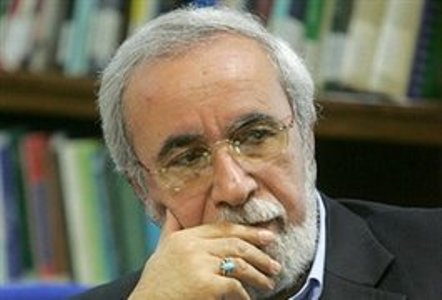Tehran – After the establishment of Al Saud regime in Saudi Arabia, the royal family began to build up a long-term relationship with the West in terms of production and export of oil and its related industries as well as purchasing military equipment.
In an article by the Middle East expert “Sabah Zanganeh” on Monday, the Tehran-based English-language newspaper “Iran Daily” said that “Saudi Arabia’s massive crude output for Western countries’ industries has created close ties between the Arab Kingdom and the international community, fortifying the pillars of the Saudi rule.
Since 1967, no Saudi officials have ever dared to come out against the United States and Israel even symbolically by taking a political or economic action.
American Democrats have always put Saudi Arabia under pressure to carry out democratic reforms, though cosmetically, in order to alleviate pressure exerted by world public opinion since the existence of a dictatorial regime in an important country is not justifiable due to the developments in the region. But Democrats’ pressure never led to drastic reforms in the oil-rich kingdom. President Obama has recently warned Saudi rulers that Iran is not a threat to them, rather youth unemployment, lack of NGOs, people’s lack of participation in the country’s political process, and the like are the threats. He pointed to domestic issues.
The dismissal of a few ministers is not a long-term solution to the country’s challenges. The appointment of 35-year-old Mohammed bin Salman as the deputy crown prince and minister of defense with a few years of managerial experience cannot solve major issues.
It is not surprising to see such a naive person, who is now the top military decision-maker, buying more arms from the West and waging a devastating war on neighboring Yemen. This indicates there are attempts to strengthen the position of this young man of the royal family and prepare him for the throne.
The US and the UK seek to preserve the status quo with slight changes. But actions by a young prince have created havoc in the Middle East. Saudi Arabia’s war on Yemen could have dire consequences for all countries in the Arabian Peninsula. In the long run, Saudi Arabia might witness unexpected developments with the young prince plotting a coup d’etat against his cousin Crown Prince Muhammad bin Nayef in order to assume power.
The integration of the Saudi Arabian National Guard into the Defense Ministry gave more power to Mohammed and this could pave the way for him to stage a coup. If he becomes monarch, all sons of King Abdulaziz will be kept away from power. Such developments would bring unexpected changes for Saudi people and the Persian Gulf Cooperation Council nations. Therefore, it is not unlikely to see widespread protests by people from all walks of life and with different religious background in the Arab kingdom even in the Riyadh region where the Al Saud has its stronghold.
Even now, there are reports that Abdulaziz’s sons and grandchildren are unhappy about recent appointments in the government. A big crisis is about to happen in Saudi Arabia. The presence of Al-Qaeda and the ISIL near Saudi borders could add more fuel to an imminent turmoil in the Arab country.”
IRNA
M.W

